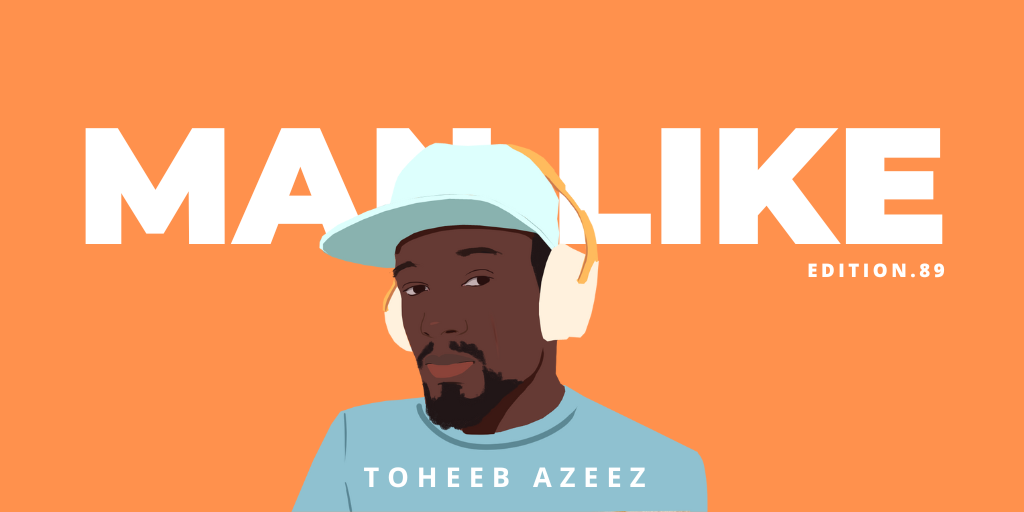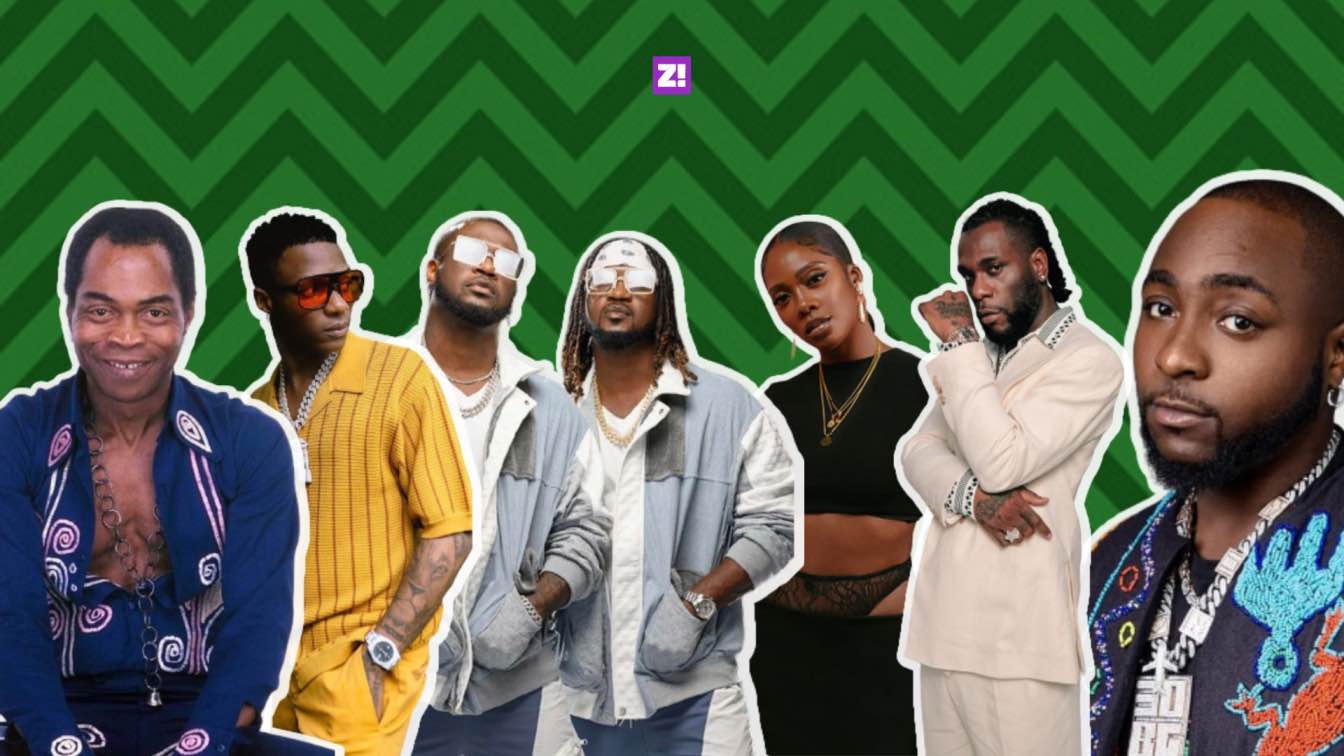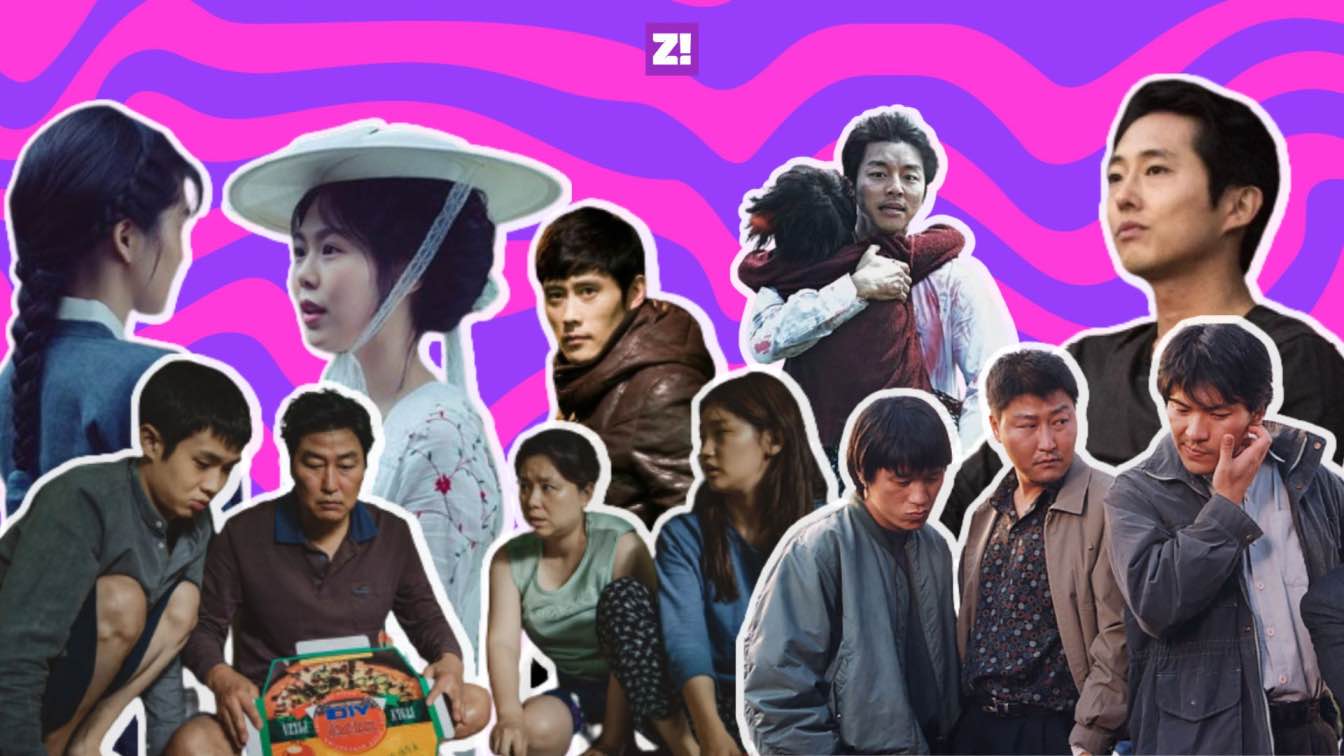What does it mean to be a man? Surely, it’s not one thing. It’s a series of little moments that add up. Man Like is a weekly Zikoko series documenting these moments to see how it adds up. It’s a series for men by men, talking about men’s issues. We try to understand what it means to “be a man” from the perspective of the subject of the week.
If there’s one thing you need to know about Toheeb Azeez, it’s that this man is committed to anything he sets his mind to. From keeping to our interview time despite shuttling between states, to changing his family’s narrative in the face of tragedy, the brand marketing exec has learnt to make things work no matter what life throws at him.

In this episode of Man Like, Toheeb talks about navigating grief after the death of his parents, stepping up as the man of the house despite financial struggles and how loss has influenced his outlook on life.
What was growing up like?
Where I grew up and where I am in life today are worlds apart from each other. I grew up in Okokomaiko, a place most people call the trenches. My dad was an electrician, my mum was a trader, so my family didn’t have much. But even though our situation wasn’t ideal, my mum made sure my siblings and I didn’t let it define us or weren’t swept away by what was happening around us. She trained us to know our lives could be better, which made us selective of the type of people we rolled with. I remember people used to say, “Don’t play with these ones because their mother will come for you o.”
LOL
Despite our financial situation, my parents made sure we went to a private secondary school, which was rare for people from my area at the time. The school was expensive, and we had to supplement it with a schedule where I had to hawk on the street right after school. I did this every day, including weekends.
Omo. How did you manage?
I started hawking in primary school, and I think that was one of the most challenging time for me. I used to run into my classmates sitting in the back of their parents’ cars while I hawked on the street. While some were compassionate about the whole situation, others would come into school the next day and laugh at me. I remember a girl who refused to pair up with me in a class simply because I was from a poor family. She would always make fun of me. It was hard.
But every time I came home to complain to my mum, she’d remind me there was no reason to be ashamed of what I was doing as long as I wasn’t stealing. After all, regardless of their parent’s financial status, I was in the same class as them. That’s all that mattered.
My mum was special like that, so it felt like my world ended when I lost her at 16.
I’m so sorry
Thank you. That wasn’t my first encounter with loss, though. When I was about 11, my mum had a baby girl, and I was very excited. My siblings and I at the time made up four boys in the family, so the idea of a little sister made me so happy I remember rolling on the floor when she was born. Unfortunately, she passed away after a year and some months. My mum had another baby girl not long after, but she also passed after nine months.
I already knew what grief meant at that tender age. By the time I turned 15, I lost my dad. A year and a week after, I lost my mum too. I was in my final year of secondary school when this happened. It was especially hard for me because we had a shared dream and plan for my future. We planned so far ahead, we hoped when I’d be 50 years old, I’d have a 25-year-old child. All these plans, and then boom, I was left alone to fend for myself and my brothers.
Damn. Do you recall what you were thinking when all of this happened?
It felt like rapture had happened. I didn’t see the point in anything anymore. My parents were dead, and I was like, “At this point, the world needs to end”. It truly felt like complete darkness. It was also around this time that I attempted suicide on Carter Bridge. I was walking slowly by the railings, just convincing myself to jump. I didn’t do it because I’d promised my mum I’d look after my brothers, and I knew I had to honour that promise.
I lost more people after my parents, like my aunt and my grandma. Now, I’m numb to death. When I hear someone close to me is dead, I feel the pain in a way, but I’m so used to it that I’m like, “Let’s get on with the funeral and move on.”
Did you ever come out of the grief that made you suicidal?
You never get over a loss like that. No matter how much I’ve tried, it still feels like it happened last year. I’ve been able to manage it over time by adopting my mum’s approach to life. As much as we made all these grand plans, she always thought about the negative and the positive — think about what you want and mentally prepare yourself if it doesn’t happen.
Her philosophy helped me understand that losing my parents was out of my control, but you know what’s still in my control? How I move on with my life. I couldn’t dwell on my situation because it’s not an excuse. I had a responsibility to myself and my brothers.
So what did you do?
I moved to live with my grandma after my parents passed, while my brothers lived with other family members. While there, I started baking and selling donuts and meat pies from her shop. Thankfully, my mum had raised me to be in the kitchen regardless of gender, so all that work wasn’t new to me. I moved from small pastries to cakes, and when mobile phones became a thing in Nigeria, I became a procurer, helping people get phones at affordable prices. I spent a large portion of my time in Computer Village. I knew almost everyone there.
I was doing all these things to care for myself and my brothers.
You became a dad to your siblings. What was that like?
Before my parents passed, my brothers and I were always fighting. I felt like my parents were strict with me and not with them. It was so bad that on her deathbed, my mum cried and begged that even though I didn’t like my brothers, I needed to take care of them. I didn’t know she thought it was that serious. I never hated them; we were just kids.
I did my best to send them to school, and with me, we became the first batch of graduates from my father’s family. We’re close, but I still have to play the role of a parent and older brother to guide them on the right path.
You mentioned graduating. How did you get into school?
First off, I wrote jamb five times. LOL. The first time, the result was withheld. The second time, they cancelled the result. The third time, the centre got cancelled. And the fourth time, the result was withheld again. It was after my fifth attempt that I finally got admission.
At this time, my grandma had passed away, and I was now living with my uncle. Even though he wasn’t exactly invested in my education at first, after I passed my GCE, he decided to support me. That’s how I ended up in a private university. I’d spent five years at home, so most of my coursemates were younger, but I didn’t care. I knew what I was there for, and I had a good time.
I remember saving my pocket money from my uncle to send my younger brothers to school. Then I started working with a bank and used most of my salary to continue this. I was able to send my brothers to school in Ghana. And because I had a first-class, my uncle agreed to sponsor my master’s years later, so I went abroad to get that done.
What happened next?
I studied Petroleum Economics and Finance in Scotland because I wanted to work in the oil industry. Long story short, there was an oil crash at that time, and I found it very hard to get a job with an oil company. But this beverage company got my CV in London and wanted to meet me. I initially refused because I’d still set my mind on working with an oil company. But after talking to my friends, I just took the job in the meantime.
I ended up spending three years with this company before moving to my current one. I also currently lead the Nigerian brand marketing team for this beverage company.
Talk about a major level-up moment! How have all of these experiences influenced your outlook on life?
My experiences have made me a critical thinker. I even feel like I overthink everything because I can look at something and picture variations of the scenario. This has helped forge my philosophy; if I’ve thought something through and understood that its success or failure lies on my back, I can go for it.
I’m also an independent thinker who likes to make my own decisions. I tend to seek second-party opinions on things, but ultimately, I know I’m responsible for myself and my decisions. I analyse my situation and do what’s best for me, not just what people expect or want.
Interesting. So what are you looking forward to these days?
The things I’m looking forward to scare me. I know my opportunities are limitless, so I’m looking forward to surprising myself with the choices I make moving forward.
Can you give me the ingredients to live a happy life?
First, learn to let things go, especially when they’re outside your control. The second rule will be “Do you”. And finally, celebrate every step, no matter how small it looks. It’s not until big things happen that you find happiness. Each step in the right direction will motivate you to keep going. So celebrate them.
I’ve taken notes. Thank you for the pointer, Toheeb
You’re welcome!




